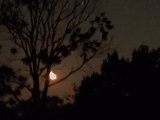Analysis of El Deseo
El deseo que te tengo
Es enumerable
Tan grande como el universo
No importa el tiempo
Ni donde estemos
Te deseo
Necesito tu piel serca de la mia
Necesito tus labios, tus manos
Necesito mirar en esos ojos
Esos bellos ojos que me dicen
Todo lo que necesito saber
Tu cuerpo me dice como te hice falta
Y solo se una cosa
El deseo que tenemos es imenso
Y eso es algo que no va poder calmarse
Por que mi cuerpo y tu cuerpo
Finalmente encontaron refugio
En el que quiere descansar
| Scheme | ABCDCCECCFGHCCCDIG |
|---|---|
| Poetic Form | |
| Metre | 11111 11 111011 1111 111 11 11111110 111110 11111 111111 111110 111110111 1111010 111111 111111111 1111111 110100 11111 |
| Closest metre | Iambic pentameter |
| Characters | 483 |
| Words | 103 |
| Sentences | 1 |
| Stanzas | 1 |
| Stanza Lengths | 18 |
| Lines Amount | 18 |
| Letters per line (avg) | 21 |
| Words per line (avg) | 5 |
| Letters per stanza (avg) | 380 |
| Words per stanza (avg) | 92 |
About this poem
The desire one feels for the person who can give them everything.
Font size:
Citation
Use the citation below to add this poem analysis to your bibliography:
Style:MLAChicagoAPA
"El Deseo" Poetry.com. STANDS4 LLC, 2024. Web. 10 Jun 2024. <https://www.poetry.com/poem-analysis/162851/el-deseo>.


Discuss this Glamorosa poem analysis with the community:
Report Comment
We're doing our best to make sure our content is useful, accurate and safe.
If by any chance you spot an inappropriate comment while navigating through our website please use this form to let us know, and we'll take care of it shortly.
Attachment
You need to be logged in to favorite.
Log In